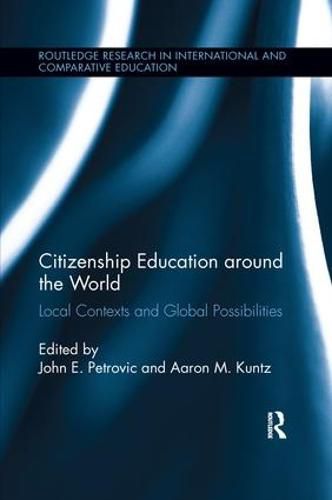Readings Newsletter
Become a Readings Member to make your shopping experience even easier.
Sign in or sign up for free!
You’re not far away from qualifying for FREE standard shipping within Australia
You’ve qualified for FREE standard shipping within Australia
The cart is loading…






Though certainly not a new idea, citizenship education manifests in unique and often unpredictable ways in our contemporary neoliberal era. The question of what it means to be a productive and recognized citizen must now be understood simultaneously along both global and local lines. This edited volume offers an international perspective on citizenship education enacted in specific socio-political contexts. Each chapter includes a pointed conceptualization of citizenship education-a philosophical framework-that is then applied to specific national cases across Europe, Asia, Canada and more. Chapters emphasize how such frameworks are implemented within local contexts, encouraging particular pedagogical/curricular practices even as they constrain others. Chapters conclude with suggestions for productive change and how educators might usefully engage contemporary contexts through citizenship education.
$9.00 standard shipping within Australia
FREE standard shipping within Australia for orders over $100.00
Express & International shipping calculated at checkout
Though certainly not a new idea, citizenship education manifests in unique and often unpredictable ways in our contemporary neoliberal era. The question of what it means to be a productive and recognized citizen must now be understood simultaneously along both global and local lines. This edited volume offers an international perspective on citizenship education enacted in specific socio-political contexts. Each chapter includes a pointed conceptualization of citizenship education-a philosophical framework-that is then applied to specific national cases across Europe, Asia, Canada and more. Chapters emphasize how such frameworks are implemented within local contexts, encouraging particular pedagogical/curricular practices even as they constrain others. Chapters conclude with suggestions for productive change and how educators might usefully engage contemporary contexts through citizenship education.